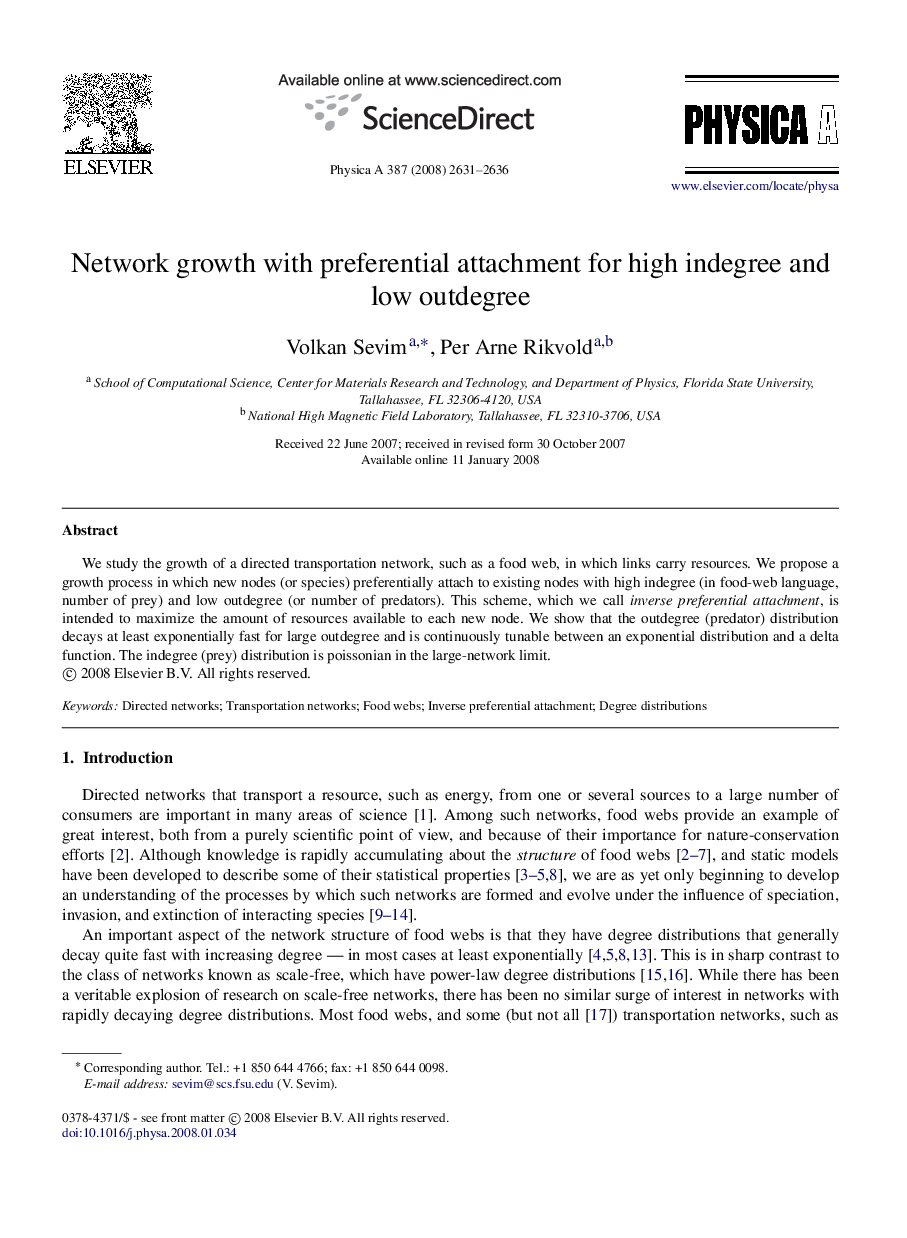| Article ID | Journal | Published Year | Pages | File Type |
|---|---|---|---|---|
| 975159 | Physica A: Statistical Mechanics and its Applications | 2008 | 6 Pages |
Abstract
We study the growth of a directed transportation network, such as a food web, in which links carry resources. We propose a growth process in which new nodes (or species) preferentially attach to existing nodes with high indegree (in food-web language, number of prey) and low outdegree (or number of predators). This scheme, which we call inverse preferential attachment, is intended to maximize the amount of resources available to each new node. We show that the outdegree (predator) distribution decays at least exponentially fast for large outdegree and is continuously tunable between an exponential distribution and a delta function. The indegree (prey) distribution is poissonian in the large-network limit.
Related Topics
Physical Sciences and Engineering
Mathematics
Mathematical Physics
Authors
Volkan Sevim, Per Arne Rikvold,
